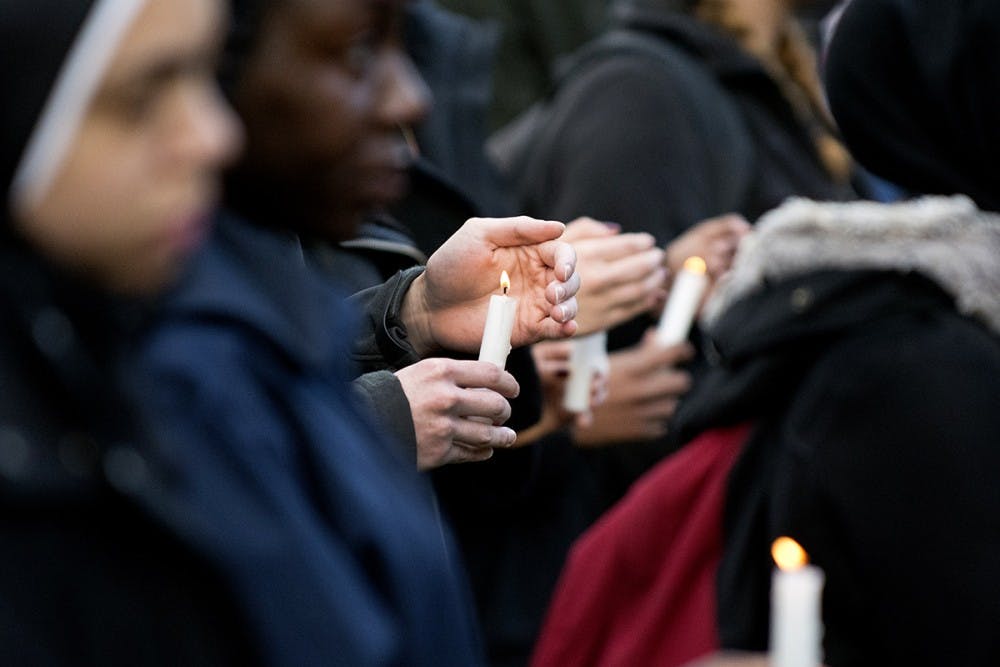Last week, a terrorist opened fire at two mosques in Christchurch, New Zealand, leaving the world horrified. A white supremacist and self-proclaimed member of the alt-right discharged his weapons during Friday prayer, the weekly congregation time for Muslims, slaughtering fifty and injuring fifty more. Anti-mosque incidents — both violent and non-violent — have been on the rise recently. This trend has also been present in the United States, most recently including the 2015 attacks at the University of North Carolina at Chapel Hill which left three dead. All of these events bring to light another significant trend — the world’s devaluation of Muslim lives. But we do not have to look at the news to see this. We merely need to look around at our own University community.
Though most Muslims were not surprised at the lack of response from global leaders, the pain was twofold when we realized the community we call home did not so much as send an email to acknowledge that members of our University lost fifty brothers and sisters. While the University is clearly not responsible for fixing international matters, the administration has historically acknowledged worldwide tragedies and offered support to its students. Within a few hours after the Nov. 2015 Paris attacks, former President Teresa Sullivan sent an email to the University community extending support and services. A vigil was held shortly after, leaving the amphitheatre overflowing with community support.
The New Zealand attack took place exactly two days before spring break ended, which means we were expected to return to classes, turn in homework and take exams 48 hours after a major emotional trauma, with hardly any time to process it. The Muslim Students Association held a lightly attended vigil Monday evening, and a number of Muslim students were not allowed by their professors to leave their evening classes in order to attend and mourn with their community. The most frustrating aspect about this incident is that there was a simple solution, one that would have both made Muslim students feel acknowledged and heard, as well as given the greater U.Va. population context on the emotions and fear many of their students and peers are currently experiencing. Fellow students should have been more active in reaching out to their Muslim peers and offering support. Had Dean of Students Allen Groves or President Jim Ryan taken the time to draft a simple email outlining the events and extending administrative support, they could have acknowledged some of the Muslim community’s pain and trauma.
To their credit, both Ryan and Groves shared the MSA’s statement on social media and reached out to the MSA council. But focusing their support on a platform that many students do not follow, and reaching out to Contracted Independent Organizations that most students are not a part of, falls flat in the face of such tragedy.
It’s difficult to ask, “Why don’t you care about me as much as you care about them?” without coming off as spiteful or giving the impression that we do not believe other communities are as deserving of University support. Rather, the Muslim community yearns to feel that our lives are valued and that when members in our community are massacred, people might take a moment during their day to acknowledge it.
The day of the attacks, Yousef Munayyer of the U.S. Campaign for Palestinian Rights tweeted, “The devaluation of Muslim life, which furthers violence against them, is enabled by disparity in coverage between attacks by Muslims vs attacks against them or others.” The Middle Eastern news outlet, Al Jazeera, reported extensively on this matter following the Charlie Hebdo attacks and the Paris attacks. Ultimately, the reality is that the media does not value Muslim lives anywhere near the same way it values white lives. For many popular media outlets, Muslims only make a prominent appearance as terrorists or enemies of the West.
When it comes to our University community, however, many of these problems can be easily addressed and alleviated by our University administration. The attack on Muslims in the West exhausts and drains Muslim folks, and being a student comes with its own stress as well. If the administration treated major attacks on the Muslim community in a similar fashion to the way they treat other terrorist attacks, our Muslim student population would be allowed to process and cope with the trauma more freely and truly see that support does exist at the University. At the vigil, Groves stated that the administration wants to be an active ally to the Muslim community. Active allyship means acknowledgement, an amplification of people’s voices, the trauma they are experiencing and awareness about what resources and support they need. Administrative allyship means using that power to encourage professors to extend sympathy and leniency to their affected students.
A recent message shared around the community reads, “It is not enough to be outraged on behalf of the Muslim community. Realize the Muslim community IS your community. Our faith should never matter more than our humanity.”
We hope University faculty, staff and students alike will start to take these words to heart and translate them into action.
Omar Elhaj is a third-year student in the College and currently serves as the Class of 2020 President.
Rawda Fawaz is a fourth-year student in the College and is Program Chair of the Muslim Institute for Leadership and Empowerment.







